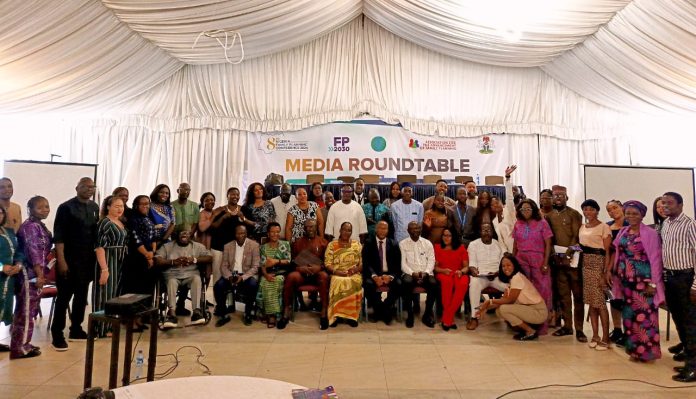by Loveth Asogwa,
The much-anticipated 8th Nigeria Family Planning Conference is set to commence on December 3, 2024, with a groundbreaking focus on the inclusion of persons with disabilities in family planning services. This year’s event, themed around accessibility and inclusion, promises to be a landmark in addressing the sexual and reproductive health needs of persons with disabilities (PWDs) in Nigeria.
Speaking at a media roundtable organized in preparation for the conference on Tuesday, the Chairman of the Organizing Committee, Dr. Ejike Orji, unveiled the lineup of activities scheduled to span five days. Dr. Orji emphasized that the event has been designed to ensure that women with disabilities actively participate in discussions and decision-making processes surrounding family planning.
“As part of our commitment to inclusivity, we have ensured that women with disabilities will not just attend but play key roles in this year’s conference,” Dr. Orji stated. “For instance, one of our panel discussions will feature a woman with a disability as a panelist, bringing firsthand insights into the challenges and opportunities in family planning services for PWDs. Additionally, we have dedicated an entire session to the theme of disability inclusion and family planning during the break period on one of the conference days.”
Highlighting the importance of inclusive representation, Dr. Orji revealed that the committee has taken a bold step by incorporating a prominent disability advocate, Ambassador Jake Epelle, into the planning team. Ambassador Epelle, a long-time champion for the rights of PWDs, is expected to bring invaluable perspectives to the event and ensure that the voices of persons with disabilities resonate throughout the conference.
In his goodwill message at the media roundtable, Ambassador Jake Epelle called on media practitioners to leverage their platforms to advocate for the rights of persons with disabilities to access family planning services. He stressed that PWDs, particularly women, are among the most vulnerable groups when it comes to sexual and reproductive health.
“Persons with disabilities need family planning information now more than ever,” Ambassador Epelle said. “They face unique vulnerabilities that make them susceptible to sexual and reproductive health challenges. Ignorance of family planning options can lead to dire consequences. This is why it is crucial that they are equipped with the knowledge to make informed decisions about their bodies and futures.”
Ambassador Epelle further highlighted that inclusion is not just a moral imperative but a strategic necessity for the health sector. He applauded the organizing committee for taking concrete steps to address the long-standing neglect of persons with disabilities in family planning discourse.
The conference, set to run for five days, will include a series of keynote speeches, panel discussions, and breakout sessions tailored to address diverse aspects of family planning. The opening ceremony on the first day will set the tone for the event, with policymakers, health experts, and representatives of marginalized groups coming together to chart a way forward for equitable family planning services in Nigeria.
The inclusion of disability-focused sessions underscores a broader commitment to leave no one behind in the quest for universal access to reproductive health. With over 27 million persons with disabilities in Nigeria, this year’s conference could mark a turning point in bridging the gap between family planning services and the often-overlooked demographic of PWDs.
The media roundtable ended on a high note, with media professionals pledging to amplify the message of inclusion and equity in their reportage. As December approaches, expectations are high for the conference to deliver actionable solutions and a renewed commitment to inclusivity in Nigeria’s health sector.
The 8th Nigeria Family Planning Conference promises not only to advance family planning discourse but also to serve as a rallying point for integrating disability rights into national health policies. The spotlight on persons with disabilities is a welcome development that many hope will translate into tangible improvements in their access to essential health services.


